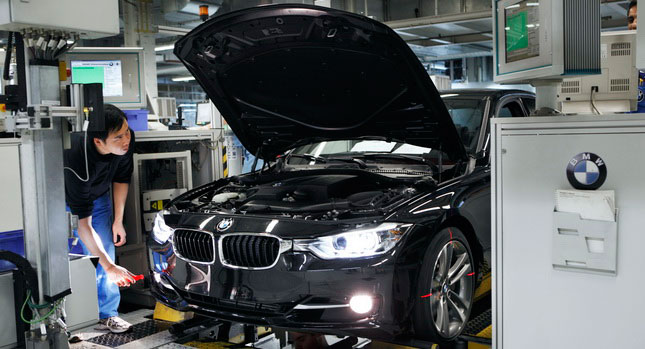You’re bombarded by the same message over and over again on the news and perhaps have even experienced it at your work as well: there is a global economic crisis, things are not going well, workers have to adapt and accept lower wages in order to keep their jobs.
It’s happening all over the world, from Europe to the United States. Even the current administration’s “car czar”, Steve Rattner, said that the government should have pushed the UAW to take wage cuts in order to enhance U.S. automakers’ competiveness.
It seems to make sense: cutting costs is a tried method of increasing a company’s profitability. But what if it’s all a lie created by profit-hungry, greedy mega corporations and perpetrated by the media – which, in some cases, are owned by the same people?
 That’s the question posed by Kevin C. Brown on his article in Remapping Debate. The argument he makes is quite compelling: how are German car workers at companies like BMW, Mercedes-Benz and VW paid twice as much as their counterparts in the U.S., yet manufacture twice as many cars?
That’s the question posed by Kevin C. Brown on his article in Remapping Debate. The argument he makes is quite compelling: how are German car workers at companies like BMW, Mercedes-Benz and VW paid twice as much as their counterparts in the U.S., yet manufacture twice as many cars?
Numbers speak for themselves. In 2010, over 5.5 million cars were produced in Germany, compared to 2.7 million in the U.S. The median wage (including benefits) for autoworkers in Germany was US$67.14 (€48.97) per hour, almost double as much as the US$33.77 earned by the average American autoworker.
If Rattner’s statement is correct, then German carmakers must surely be less profitable than their U.S. rivals, right?
Unfortunately, that’s not the case: all three of the aforementioned German companies have posted record sales and profits despite the economic crisis, improving on their 2010 results.
To cut a (very) long story short, the reason for this seemingly impossible situation lies in the different cultures that prevail in each country.
In Germany, unions such as the all-powerful IG Metall cooperate with the management. Strikes, while legal, are rare because disputes are resolved before they get out of control. Moreover, the German constitution allows “work councils” in every factory, in which workers and management work together on issues like working conditions.
Horst Mund, an IG Metall executive, describes it as a situation where “you don’t always wear your management pin or your union pin”.
That’s in sharp contrast to the what goes on in the States. Michel Maibach, President and CEO of the European American Business Council, says union-management relations in the U.S. are “adversarial”, whereas in Germany they are “collaborative”.
On the other hand, the German culture does not survive when it crosses the Atlantic. German factories in the U.S. adopt an anti-union, low-wage strategy just like the local manufacturers.
As the article states, “BMW is a German company and it has a very German hierarchy and management system in Germany. Yet, when they are operating in Spartanburg, they have become very, very easily adaptable to the Spartanburg business culture.”
A BMW spokesman declined to reveal the average wage in the South Carolina factory, but the Washington Post reported in 2010 that it was only US$15 an hour.
It’s the same story at VW’s Chattanooga factory where, as a company spokesman said, workers earn US$14.50 an hour, which rises to US$19.50 after three years.
Therefore, it is not really a matter of company culture, but rather of country culture.
As Mund points out, the German example “goes against all mainstream wisdom of the neo-liberals. We have strong unions, we have strong social security systems and we have high wages. So, if I believed what the neo-liberals are arguing, we would have to be bankrupt, but apparently this is not the case. Despite high wages, the economy is working well in Germany.”
He does have a point: you don’t remember the German government rushing to bail out its car manufacturers two years ago, do you?
Story References: Remapping Debate via Forbes
PHOTO GALLERY











